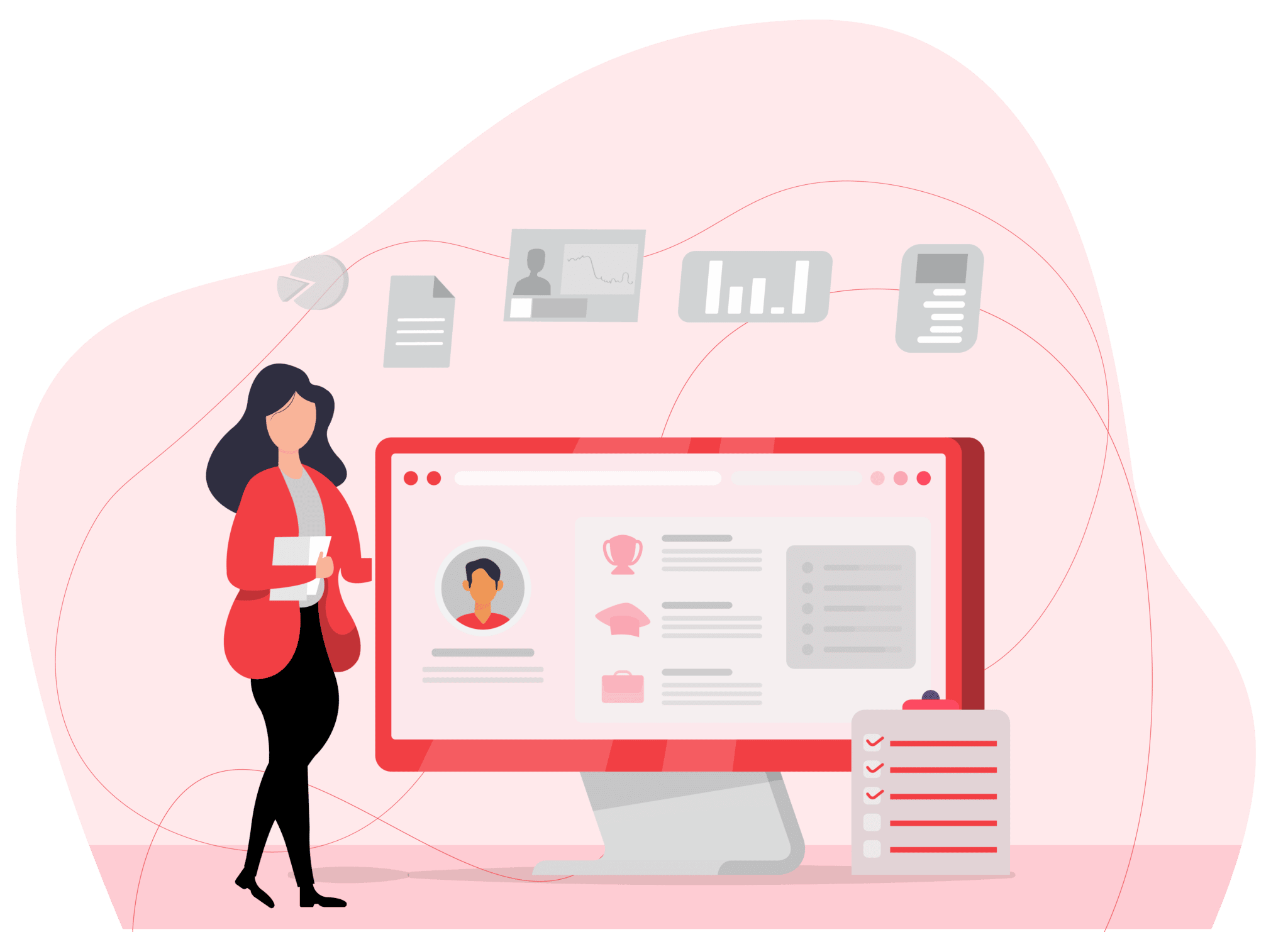The recruitment landscape for Budget Analysts is undergoing a transformative shift, driven by the ever-increasing importance of financial data analytics in today’s business world. As organizations strive for enhanced cost efficiency, risk mitigation, and strategic planning, the demand for skilled Budget Analysts has surged. This shift is particularly noteworthy for HR professionals and CXOs, who play a critical role in sourcing and selecting top talent to optimize financial operations.
To meet this demand, it is vital to assess candidates’ analytical prowess, their ability to navigate complex financial systems and their strategic thinking capabilities. In this interview process, we will delve into the key competencies that define a successful Budget Analyst, empowering your organization to make informed hiring decisions and drive financial excellence.
Here are the top 60 Budget Analyst interview questions to ask job applicants:
15 general interview questions for the Budget Analyst
- Can you explain your experience in budget analysis and how it has contributed to organizational success?
- How do you approach the process of creating and managing budgets?
- Can you describe a situation where you had to make tough budgetary decisions? How did you handle it?
- What financial software or tools are you proficient in? How have you utilized them to improve budgeting processes?
- How do you ensure accuracy and reliability in financial forecasts and projections?
- Can you discuss your experience with cost analysis and identifying areas for potential savings or efficiency improvements?
- Describe a time when you collaborated with different departments to develop a comprehensive budget. How did you ensure their involvement and alignment?
- How do you handle unexpected budget variances or changes in financial circumstances?
- Can you share an example of a successful budgeting project you led or participated in? What were the outcomes and key lessons learned?
- How do you stay updated with industry trends and best practices in budget analysis?
- Describe your experience with financial reporting and presenting budget-related information to stakeholders or executives.
- How do you approach risk assessment and mitigation within budgeting processes?
- Can you explain your experience with tracking and analyzing Key Performance Indicators (KPIs) related to budget performance?
- How do you communicate budget information to non-financial stakeholders effectively?
- Can you describe your problem-solving skills and how you have applied them in resolving budget-related challenges?
5 sample answers to general interview questions for the Budget Analyst
- Can you explain your experience in budget analysis and how it has contributed to organizational success?
look for: Look for candidates who can clearly articulate their experience in budget analysis and demonstrate how their work has positively impacted the organization’s success.
Example answer: “In my previous role as a Budget Analyst at XYZ Company, I was responsible for analyzing and monitoring the budget for multiple departments. By implementing a comprehensive cost control strategy, I was able to identify areas for savings and reallocate funds to high-priority projects. This resulted in a 10% reduction in overall expenses, allowing the organization to invest in new initiatives and drive growth.”
- How do you approach the process of creating and managing budgets?
look for: Look for candidates who have a structured approach to budget creation and management, including gathering relevant data, collaborating with stakeholders, and ensuring accuracy and flexibility in budget planning.
Example answer: “When creating and managing budgets, I follow a systematic approach. First, I gather historical financial data, assess current financial conditions, and analyze market trends to make informed projections. I collaborate closely with department managers to understand their needs and align budgetary goals. I also prioritize ongoing communication and review of the budget to address any changes or unforeseen circumstances promptly. This method ensures that budgets are realistic, adaptable, and aligned with organizational objectives.”
- Can you describe a situation where you had to make tough budgetary decisions? How did you handle it?
look for: Look for candidates who can demonstrate their ability to make difficult budgetary decisions by considering multiple factors, balancing priorities, and effectively communicating their decisions to stakeholders.
Example answer: “In a previous role, I encountered a situation where we had to reduce costs due to budget constraints. I conducted a thorough analysis of various cost categories and engaged in discussions with department heads to understand the impact of potential cuts. After careful consideration, I proposed a combination of expense reductions and process optimizations that minimized the impact on essential services while still achieving the required cost savings. I presented my recommendations to senior management, emphasizing the rationale behind each decision, and gained their support for the implemented changes.”
- How do you ensure accuracy and reliability in financial forecasts and projections?
look for: Look for candidates who emphasize the importance of data accuracy, the utilization of forecasting methodologies, and their ability to validate and refine projections based on changing circumstances.
Example answer: “To ensure accuracy and reliability in financial forecasts, I start by gathering reliable historical data and utilizing statistical models to identify trends and patterns. I also incorporate external factors such as industry benchmarks and economic indicators. I consistently review and validate my projections against actual results, making adjustments as necessary. Additionally, I actively monitor market conditions and industry developments to anticipate potential changes that may impact the accuracy of the forecasts.”
- How do you communicate budget information to non-financial stakeholders effectively?
look for: Look for candidates who can explain their ability to translate complex financial information into clear and understandable terms for non-financial stakeholders, emphasizing their communication and presentation skills.
Example answer: “I recognize the importance of effectively communicating budget information to non-financial stakeholders. I strive to present complex financial data in a simplified and meaningful way by using visual aids such as charts, graphs, and concise summaries. I focus on highlighting key insights, trends, and the implications of the budget for various departments or projects. Additionally, I encourage open dialogue and provide opportunities for stakeholders to ask questions and seek clarification, ensuring that they have a solid understanding of the budget and its implications for their respective areas.”
15 behavioral interview questions for a Budget Analyst
- Tell me about a time when you had to handle a budgeting project with competing priorities. How did you manage the situation?
- Describe a situation where you identified cost-saving opportunities in a budget. How did you go about implementing those changes?
- Can you share an example of a time when you faced a significant budget variance? How did you investigate and address the issue?
- Tell me about a time when you had to present complex budget information to non-financial stakeholders. How did you ensure their understanding and buy-in?
- Describe a challenging financial forecasting project you worked on. What steps did you take to ensure accurate and reliable projections?
- Can you share a situation where you had to navigate a budget constraint while still achieving desired outcomes? How did you prioritize and allocate resources?
- Tell me about a time when you had to influence stakeholders to make changes to the budget. How did you approach the situation and gain their support?
- Describe a time when you identified a potential risk or financial threat in a budget. How did you mitigate the risk and protect the organization’s financial interests?
- Can you share an example of a budgeting process improvement you implemented? What was the impact of your initiative?
- Tell me about a time when you had to work with a limited budget and ensure optimal resource allocation. How did you optimize your decision-making process?
- Describe a situation where you had to manage multiple budgeting projects simultaneously. How did you prioritize and organize your workload to meet deadlines?
- Tell me about a time when you had to revise a budget due to unforeseen circumstances. How did you adapt the budget to accommodate the changes?
- Can you share an example of a time when you collaborated with cross-functional teams to develop a budget? How did you ensure alignment and coordination?
- Describe a time when you successfully communicated complex financial concepts to a non-technical audience. How did you tailor your communication to ensure comprehension?
- Tell me about a situation where you had to make a difficult budgetary decision in the face of resistance from stakeholders. How did you handle the resistance and reach a resolution?
5 sample answers to behavioral interview questions for the Budget Analyst
- Tell me about a time when you had to handle a budgeting project with competing priorities. How did you manage the situation?
look for: Look for candidates who can demonstrate their ability to effectively prioritize tasks, negotiate with stakeholders, and find a balance between competing priorities.
Example answer: “In my previous role, I was tasked with managing a budgeting project that involved multiple departments with different priorities. To manage the situation, I initiated regular meetings with department heads to understand their requirements and the potential impact on the budget. Through open communication and collaboration, we identified common goals and negotiated adjustments where necessary. I then developed a timeline that allowed for phased implementation based on the priorities and dependencies of each department. By maintaining transparency and keeping all stakeholders informed, we successfully executed the project within the allocated budget and met the critical needs of each department.”
- Describe a situation where you identified cost-saving opportunities in a budget. How did you go about implementing those changes?
look for: Look for candidates who can demonstrate their analytical skills, attention to detail, and ability to drive cost-saving initiatives within a budget.
Example answer: “During a budget review in my previous position, I identified a significant opportunity for cost savings in the area of vendor contracts. By analyzing historical spending patterns, conducting market research, and negotiating with vendors, I identified alternative suppliers who could provide the same quality of service at a lower cost. I presented the findings to the management team, highlighting the potential savings and the impact on the budget. With their approval, I implemented the changes by renegotiating contracts and transitioning to the more cost-effective vendors. As a result, we achieved a 15% reduction in annual vendor expenses, contributing to overall budget optimization.”
- Can you share an example of a time when you faced a significant budget variance? How did you investigate and address the issue?
look for: Look for candidates who can demonstrate their problem-solving skills, attention to detail, and ability to identify the root causes of budget variances.
Example answer: “In a previous role, we encountered a significant budget variance due to unexpectedly high project costs. To investigate and address the issue, I conducted a detailed analysis of the project expenses, comparing them to the initial budget and forecasted costs. I discovered that there were cost overruns in certain activities due to unforeseen circumstances and changes in project scope. To address the issue, I initiated discussions with project managers and relevant stakeholders to gain a comprehensive understanding of the underlying factors. We then collaborated on identifying corrective measures, such as revising the project timeline, reallocating resources, and implementing stricter cost controls. By closely monitoring the revised budget and implementing these measures, we successfully brought the project back on track and minimized the overall budget variance.”
- Tell me about a time when you had to present complex budget information to non-financial stakeholders. How did you ensure their understanding and buy-in?
look for: Look for candidates who can effectively communicate complex financial information in a clear and concise manner, tailoring their approach to the audience.
Example answer: “In my previous role, I had to present the annual budget proposal to the executive board, which consisted of non-financial stakeholders. To ensure their understanding and buy-in, I prepared a comprehensive presentation that focused on the key budgetary goals, the impact on the organization’s strategic objectives, and the financial implications for each department. I utilized visual aids, such as charts and graphs, to simplify complex data and highlight the most relevant information. I also provided explanations and context for financial terms to ensure clarity. During the presentation, I encouraged questions and facilitated a discussion to address any concerns or uncertainties. By tailoring my communication style to the board members’ perspectives and needs, I successfully gained their understanding and secured their support for the proposed budget.”
- Describe a challenging financial forecasting project you worked on. What steps did you take to ensure accurate and reliable projections?
look for: Look for candidates who can demonstrate their proficiency in financial forecasting methodologies, attention to detail, and ability to incorporate relevant data and factors into their projections.
Example answer: “In a previous position, I was involved in a challenging financial forecasting project that required accurate projections for revenue and expenses over a five-year period. To ensure accurate and reliable projections, I followed a systematic approach. First, I gathered historical financial data, including revenue trends, expense patterns, and market conditions. I then utilized forecasting techniques such as time series analysis and regression models to identify and project future trends. Additionally, I considered external factors such as industry benchmarks, economic indicators, and market research to refine my projections. Throughout the process, I maintained regular communication with key stakeholders to gather insights and validate assumptions. By diligently following this approach, I was able to provide accurate financial forecasts that informed strategic decision-making and budget planning.”
15 personality interview questions for the Budget Analyst
- How do you handle tight deadlines and multiple competing priorities?
- Describe a time when you had to work independently and take initiative in a budgeting project.
- How do you stay organized and manage your time effectively when working on complex financial analyses?
- Can you share an example of a situation where you demonstrated attention to detail in your budget analysis work?
- How do you approach problem-solving in the context of budget analysis? Can you provide an example?
- Describe a time when you had to work collaboratively with other team members or departments to achieve a budgetary goal.
- How do you handle constructive criticism or feedback regarding your work? Can you provide an example of a time when you received feedback and implemented improvements?
- Can you describe a situation where you had to adapt to changing priorities or unexpected budgetary challenges? How did you handle it?
- How do you approach financial data analysis to identify patterns, trends, and insights? Can you provide an example of a time when you utilized data analysis to make informed budget decisions?
- Describe a situation where you had to present complex financial information to a diverse audience. How did you adapt your communication style to ensure understanding and engagement?
- How do you stay updated with industry trends and developments in budget analysis practices?
- Describe a time when you had to deal with a difficult or resistant stakeholder while working on a budgeting project. How did you handle the situation?
- How do you handle stress or pressure in your work as a Budget Analyst? Can you provide an example of a high-pressure situation you successfully managed?
- Can you share an example of a time when you identified an inefficiency or improvement opportunity in a budgeting process? How did you propose and implement the necessary changes?
- How do you ensure accuracy and reliability in your budget analysis and forecasting work? Can you provide an example of a time when your attention to accuracy led to positive outcomes?
5 sample answers to personality interview questions for Budget Analyst
- How do you handle tight deadlines and multiple competing priorities?
look for: Look for candidates who can demonstrate their ability to effectively prioritize tasks, manage time, and work efficiently under pressure.
Example answer: “I thrive in fast-paced environments and enjoy the challenge of working with tight deadlines and multiple competing priorities. To handle such situations, I prioritize tasks based on urgency and impact, breaking them down into smaller, manageable steps. I create a schedule and allocate time accordingly, ensuring that I meet deadlines without compromising the quality of my work. Additionally, I proactively communicate with stakeholders to manage expectations and provide progress updates. By staying organized, focused, and adaptable, I have consistently delivered results even under demanding circumstances.”
- How do you approach problem-solving in the context of budget analysis? Can you provide an example?
look for: Look for candidates who demonstrate analytical thinking, problem-solving skills, and the ability to identify creative solutions to budget-related challenges.
Example answer: “When it comes to problem-solving in budget analysis, I adopt a structured approach. First, I thoroughly analyze the problem by gathering and reviewing relevant financial data, identifying trends, and investigating potential root causes. I then brainstorm potential solutions, considering both short-term and long-term implications. For example, in a situation where we faced unexpected cost overruns, I conducted a detailed analysis to identify the underlying causes. By collaborating with cross-functional teams, we developed a cost-containment strategy that involved renegotiating contracts, implementing process improvements, and optimizing resource allocation. This multifaceted approach helped us address the problem, mitigate risks, and achieve long-term cost savings.”
- How do you handle constructive criticism or feedback regarding your work? Can you provide an example of a time when you received feedback and implemented improvements?
look for: Look for candidates who demonstrate a growth mindset, openness to feedback, and a willingness to learn and improve.
Example answer: “I view constructive criticism as an opportunity for growth and improvement. When receiving feedback, I listen attentively, seeking to understand the specific areas of improvement and asking clarifying questions if needed. I reflect on the feedback, assess its validity, and identify actionable steps to address the areas of concern. For instance, in a previous performance review, I received feedback regarding the clarity of my budget reports. I took this feedback to heart and worked on enhancing the clarity and structure of my reports by incorporating visual elements, simplifying technical terms, and providing more context. The result was improved communication and a better understanding of budget information by stakeholders.”
- Describe a situation where you had to adapt to changing priorities or unexpected budgetary challenges. How did you handle it?
look for: Look for candidates who can demonstrate flexibility, adaptability, and resilience in the face of changing circumstances.
Example answer: “In my previous role, I encountered a situation where a sudden budget cut forced us to reprioritize projects and reallocate resources. I embraced the challenge by promptly assessing the new budgetary constraints and engaging in open dialogue with stakeholders to understand their critical needs. I worked collaboratively with department heads to identify alternative solutions and realign priorities accordingly. By leveraging my strong organizational skills and effectively communicating the changes, we successfully adapted to the new budgetary challenges without compromising the organization’s key objectives. This experience taught me the importance of agility, proactive communication, and the ability to quickly adjust course when faced with unexpected circumstances.”
- Can you share an example of a time when you identified an inefficiency or improvement opportunity in a budgeting process? How did you propose and implement the necessary changes?
look for: Look for candidates who can demonstrate their analytical skills, attention to detail, and ability to identify and implement process improvements.
Example answer: “In a previous role, I noticed a significant time delay and manual effort involved in consolidating budget data from various departments. Recognizing the inefficiency, I proposed the implementation of centralized budgeting software that would streamline the process and improve data accuracy. To gain buy-in from stakeholders, I prepared a comprehensive business case highlighting the benefits of the software, such as time savings, improved data integrity, and enhanced collaboration. After receiving approval, I collaborated with IT teams to identify and implement the most suitable software solution. The implementation resulted in a more efficient and error-free budgeting process, saving significant time and improving overall accuracy.”
When should you use skill assessments in your hiring process for Budget Analyst?
Skill assessments can be a valuable addition to the hiring process for Budget Analysts. They provide an objective and standardized way to evaluate candidates’ abilities and proficiency in key skills required for the role. By incorporating skill assessments, employers can gain deeper insights into candidates’ practical skills, knowledge, and problem-solving abilities, going beyond what can be revealed through resumes and interviews alone.
Skill assessments are important because they help validate the claims made by candidates and provide a reliable measure of their competence. They allow employers to assess candidates’ proficiency in areas such as financial analysis, budget management, data interpretation, and forecasting. These assessments provide a more accurate assessment of candidates’ abilities and can help identify the top performers who are most likely to succeed in the role.
Some commonly used assessments for evaluating skills in Budget Analysts include:
- Financial Analysis Exercises
These exercises assess candidates’ ability to analyze financial data, identify trends, and make informed recommendations based on the findings. Candidates may be given financial statements, budget reports, or hypothetical scenarios to analyze and provide insights.
- Budgeting and Forecasting Case Studies
These case studies evaluate candidates’ skills in developing budgets, conducting forecasting, and making strategic financial decisions. Candidates are presented with real-world scenarios and asked to create budget plans, assess risks, and propose adjustments based on changing circumstances.
- Spreadsheet Proficiency Tests
Given the importance of spreadsheet software in budget analysis, these tests assess candidates’ proficiency in using spreadsheet tools like Microsoft Excel. Candidates may be required to demonstrate their ability to perform calculations, create formulas, analyze data, and present information effectively using spreadsheets.
- Written Communication Assessments
These assessments evaluate candidates’ written communication skills, which are essential for producing clear and concise budget reports, financial analyses, and recommendations. Candidates may be asked to provide a writing sample or respond to hypothetical scenarios by preparing written responses.
Employers can tailor the selection of skill assessments based on the specific requirements of the Budget Analyst role and the desired skills and competencies. These assessments provide a standardized and objective way to evaluate candidates’ skills, ensuring that the selected candidates possess the necessary abilities to excel in the position.
Use our interview questions and skill tests to hire a talented Budget Analyst
Unlock the potential of your hiring process with Testlify’s comprehensive skill assessments and interview questions specifically designed for Budget Analysts.
Our extensive test library offers a wide range of assessments, including cognitive function, personality, situational judgment, programming, and more. By leveraging these assessments, you can objectively evaluate candidates’ abilities, ensuring you shortlist the most talented individuals efficiently.
To further enhance your hiring process, we invite you to book a free 30-minute live demo. Our expert team will guide you through the platform, showcasing relevant skill tests tailored to your hiring needs. With our support, you can streamline candidate selection, saving valuable time and resources.
Ready to find the perfect fit for your Budget Analyst role? Testlify provides the tools you need to make informed hiring decisions. Explore our skill assessments and interview questions today to uncover exceptional talent for your team.








